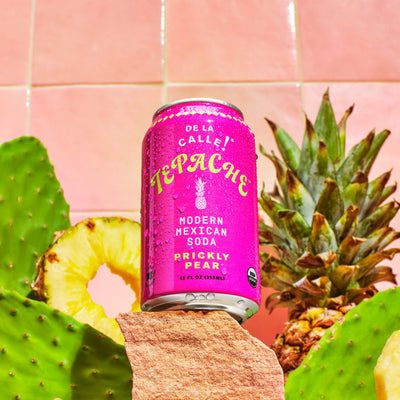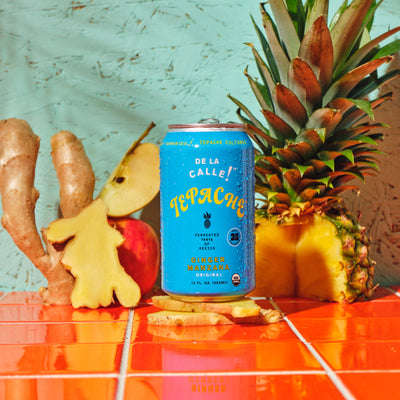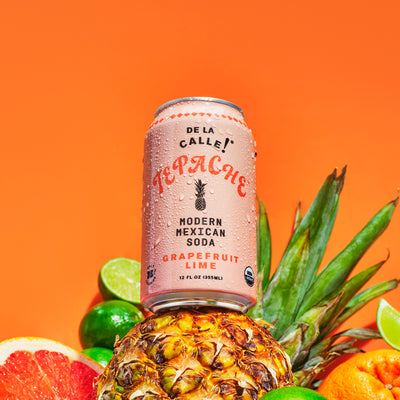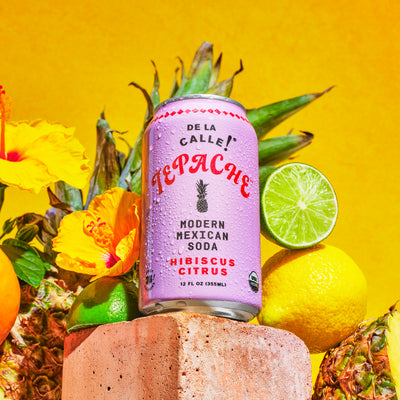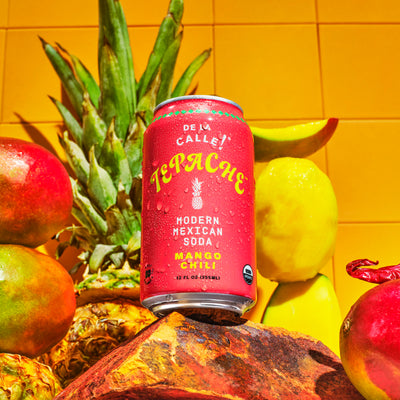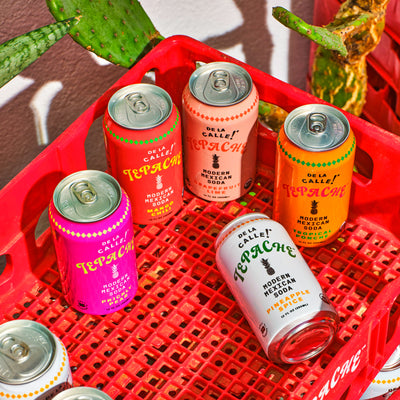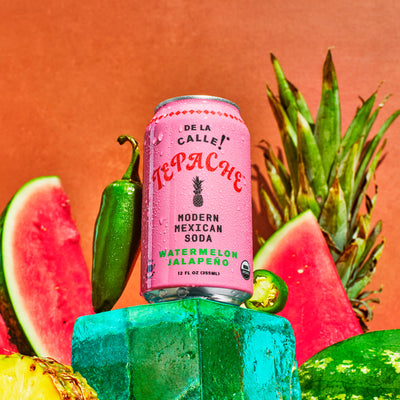Fermented Sugar: What Is It?

The easiest way to understand fermented sugar is to first know what in the world it means to ferment something. So, to cut down on the complicated chemistry jargon, we’ll try and make it as easy as possible.
What Is Fermentation?
Fermentation is the process of taking a complex compound and breaking it down into smaller component parts. This is usually done by giving whatever you want to ferment a simple mix of something—for instance, water and sugar. When fermenting a cucumber to get a pickle, what really happens in that jar?
So, take the cute ol’ cuke, soon to be a pretty lil pickle. The cucumber is getting older, but the mixture of water and vinegar that the cucumber is fermented in is what makes the real magic happen. When mixed with the natural compounds that make up the cucumber, the compounds in the vinegar and water say scram to the cucumber’s natural acids. After they’ve been expelled, the pickle gets its oh-so-famous tangy signature.
Fermentation is a natural process that turns food that may otherwise be unused into tasty treats that are entirely new. Instead of certain food or drinks aging and going bad, fermenting them gives them a second shot at life to be something new! It is quite beautiful when you think about it. Who knew a pickle could tug at the heartstrings?
Ferment The Sugar
Okay, so fermentation is a metaphor for a second chance, blah blah blah, but what does that have to do with fermented sugar? How does sugar age? Well, fermenting sugar is actually the exact same process as fermenting anything else. It’s just at a way more basic level.
Since sugar is already a relatively simple compound, the fermentation of sugar breaks down into really simple parts. These simple parts are alcohol. That does not mean the fermented sugar in your tepache or kombucha will have you dancing on top of tables (unless that's what you’re going for).
Fermented sugar has existed forever and is found in tons of drinks you are probably already familiar with, like rum, ginger beer, and bourbon. These drinks do not usually say “fermented sugar” as an ingredient, just because the fermentation of sugar creates simple alcohol compounds.
These boozy drinks may not always be the best for your health, or you may just be looking for a fresh drink to sip on. If that is the case, definitely take a look at some healthier options that include fermented sugar. You can test out a kombucha or go for a unique and refreshing twist on the fermented sugar game and sip on a tasty tepache, otherwise known as pineapple beer.
These options carry the benefits of the fermentation that we’re about to get into without the hangover in the morning.
Benefits of Fermented Sugar
While you take a load off and sip on your tepache, you can rest assured that you are doing something great for your body. There are a lot of plus sides to consuming fermented sugar. Here are just a few.
It Is Naturally Gluten Free
No need to fear if you are gluten-free or you have a gluten-free friend! Drinks like tepache and other fermented sugar bases are gluten-free by default.
It Is Low Calorie
You can also rest assured that you are not consuming tons of sugar that your body will be angry about. Fermented sugar breaks down most of the calorie-containing compounds, so the only calories left are from the small amounts of alcohol in the drinks that contain it.
It Is Colorless and Flavor Neutral
This is an excellent bonus if you are ever experimenting with your own brews. Since fermented sugar does not have an overpowering flavor or color of its own, you’re free to get funky in the kitchen.
Fermented Sugar Is Economical
This is a great benefit for brewing your own drinks as well. Of all of the fermented bases, sugar is the most affordable.
Where Can I Find Things With Fermented Sugar?
Fermented sugar, though it may sound like a fancy-schmancy health food, is actually quite easy to find. Most alcoholic drinks contain fermented sugars. This is because ethanol fermentation is the key process in creating any alcohol at all.
When sugar is fermented and breaks into more simple compounds, alcohol is a by-product of the process. Alright, that's enough chemistry for today. We get it; fermenting sugar is a magic little event that gives us lots of different drinks—mostly alcoholic ones. But, what if you are interested in a drink for the whole neighborhood to share, regardless of whether or not they are 21 or older? How about some pineapple-based goodness?
Tepache, a Fruity Fermented Delight
Tepache is a beverage made from pineapple peels. It is native to the streets of Mexico and often consumed by locals and weary travelers alike. Tepache is also often called pineapple beer. But that does not mean it is always alcoholic. The alcohol content in the drink is very low unless beer is added during the fermentation process. So you can share this delicious beverage with the whole block.
You can brew your own tepache pretty easily, or you can take it a step further and get it ready-made. It is a social drink for sure, meant to be enjoyed with friends and family. Historically, tepache was sold by street vendors. Now, you can grab it in a grocery store and enjoy the delicious treat without even seeing a pineapple.
Tepache follows the fermenting tradition of using something that would otherwise go to waste. It is amazing to use up all of the parts of something instead of just throwing it away, and tepache does just that.
This refreshing beverage is a natural, low sugar, and low-calorie beverage. Plus, tepache comes with all of the benefits of probiotics and prebiotics. The drink is fantastic for your gut health and great for your taste buds too.
Oh, That’s What It Means!
Fermented sugar is super common, but normally it isn’t spotlighted as a major ingredient in your favorite beverages. It’s sugar that has broken down into simple compounds through the fermentation process. It can be found in a lot of different beverages, and it is a super accessible way to brew your own fermented experiments.
Now that you are a seasoned expert in the sugar fermentation process, you can go tell all of your friends about your newfound chemical knowledge. Perhaps you could even share the info over a tasty tepache!
Sources:
The History and Health Benefits of Fermented Food | Food and Nutrition
How Fermented Foods May Alter Your Microbiome and Improve Your Health | NY Times

